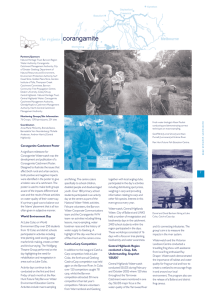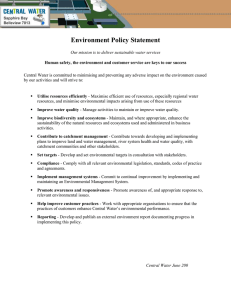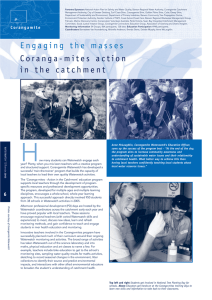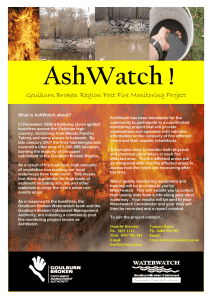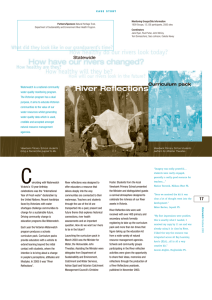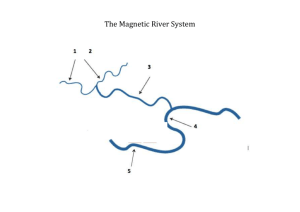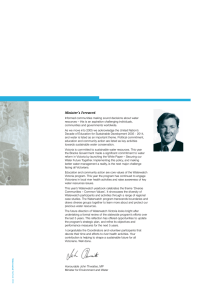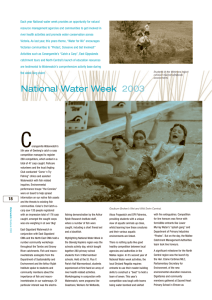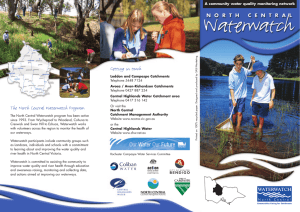Document 13168438
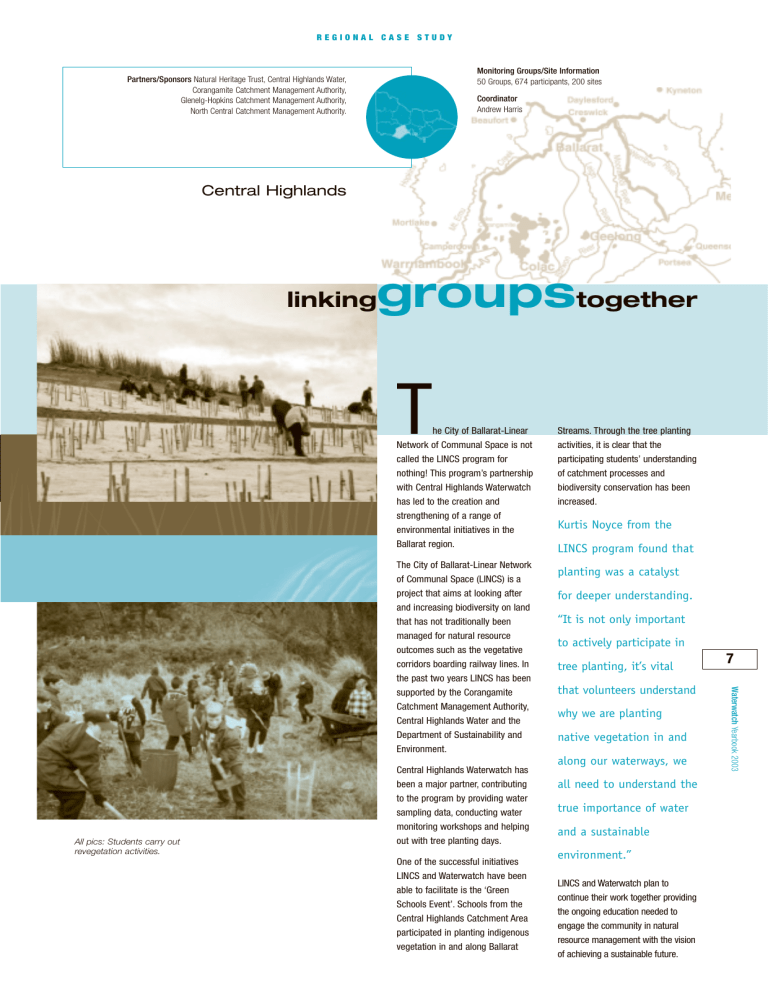
R E G I O N A L C A S E S T U D Y
Partners/Sponsors Natural Heritage Trust, Central Highlands Water,
Corangamite Catchment Management Authority,
Glenelg-Hopkins Catchment Management Authority,
North Central Catchment Management Authority.
Monitoring Groups/Site Information
50 Groups, 674 participants, 200 sites
Coordinator
Andrew Harris
Central Highlands
All pics: Students carry out revegetation activities.
linking
groups
together
T he City of Ballarat-Linear
Network of Communal Space is not called the LINCS program for nothing! This program’s partnership with Central Highlands Waterwatch has led to the creation and strengthening of a range of environmental initiatives in the
Ballarat region.
The City of Ballarat-Linear Network of Communal Space (LINCS) is a project that aims at looking after and increasing biodiversity on land that has not traditionally been managed for natural resource outcomes such as the vegetative corridors boarding railway lines. In the past two years LINCS has been supported by the Corangamite
Catchment Management Authority,
Central Highlands Water and the
Department of Sustainability and
Environment.
Central Highlands Waterwatch has been a major partner, contributing to the program by providing water sampling data, conducting water monitoring workshops and helping out with tree planting days.
One of the successful initiatives
LINCS and Waterwatch have been able to facilitate is the ‘Green
Schools Event’. Schools from the
Central Highlands Catchment Area participated in planting indigenous vegetation in and along Ballarat
Streams. Through the tree planting activities, it is clear that the participating students’ understanding of catchment processes and biodiversity conservation has been increased.
Kurtis Noyce from the
LINCS program found that planting was a catalyst for deeper understanding.
“It is not only important to actively participate in tree planting, it’s vital that volunteers understand why we are planting native vegetation in and along our waterways, we all need to understand the true importance of water and a sustainable environment.”
LINCS and Waterwatch plan to continue their work together providing the ongoing education needed to engage the community in natural resource management with the vision of achieving a sustainable future.
7
